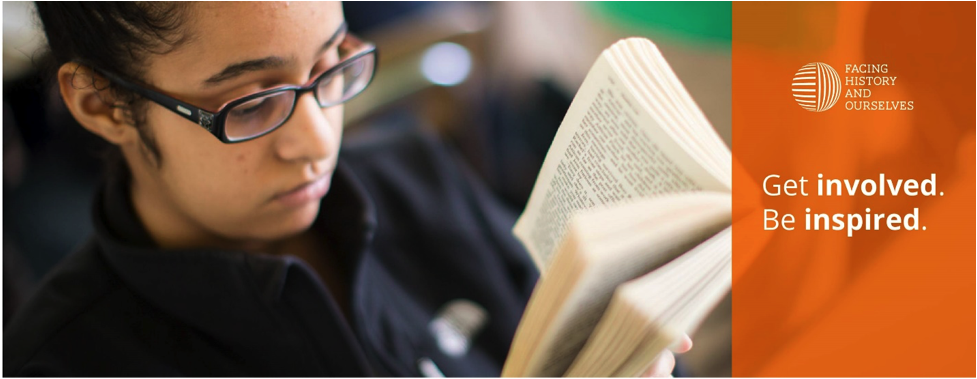Facing History and Ourselves’ Classroom Book Club Guide
A NEW TEACHING TOOL

Book clubs help students connect, build empathy, and create opportunities for students to share ideas and perspectives. Giving students a time and place to talk about books they have read is a great way to invite readers to come together, foster community, and help students build new knowledge and new understanding of all the voices integral to the story of the United States of America.
Facing History and Ourselves has thoughtful, comprehensive resources to help students build empathy, share ideas and perspectives, and connect their own lives, current events, and history. Included in its extensive collection of robust curricula are resources to facilitate the development of student-led book clubs.
Facing History and Ourselves is a global educational and professional development organization that provides content and teaching strategies that promote student engagement, critical thinking, and deeper understanding of the lessons of history. Facing History has resources to support educators and students as they explore questions of identity, human behavior, prejudice, and civic responsibility, and make the vital connection between history and the issues and choices they confront in their own lives today.
Part of its Coming-of-Age English Language Arts Collection, the Centering Student Voice and Choice: A Book Club Guide from Facing History and Ourselves can be used as-is or adapted to students’ needs. The guide offers practical advice on how to thoughtfully plan and bring book clubs to the classroom as well as guidance on how to empower readers and provide discussion tools for students.
Goals of Facing History Book Clubs
• Encourage community and connectedness.
• Practice perspective-taking and develop empathy.
• Encourage autonomy and choice.
• Develop students’ reading identities.
• Foster civil discourse.
• Increase reading volume and cultivate a passion for literature.
 Within the guide educators will find resources to help identify titles that will appeal to students, ideas for student reflection and learning, and how-to help for generating excitement, organizing groups, and scheduling meetings. Additionally, there are links to a wide variety of printable handouts to help students take ownership of their book club and have rich discussion.
Within the guide educators will find resources to help identify titles that will appeal to students, ideas for student reflection and learning, and how-to help for generating excitement, organizing groups, and scheduling meetings. Additionally, there are links to a wide variety of printable handouts to help students take ownership of their book club and have rich discussion.
Facing History and Ourselves has also adapted their book club guide for remote learning. When it is not possible for students to meet in person, ideas and guidance in Remote Book Clubs: Nurturing Community and Connection can help keep students reading and talking about books.
Inspired to create a classroom book club? See all our reading recommendations.
Parents and caregivers who want to have book clubs at home should check out How to Start a Book Club for Kids.
Rachael Walker has more than 30 years of experience developing partnerships and educational products with nonprofit organizations, corporations, and public agencies to benefit at-risk children and families. She launches national campaigns, coordinates special events, and develops original content for the National Education Association, Random House Children’s Books, PBS, and WETA’s Learning Media initiatives (Reading Rockets, Colorín Colorado, and AdLit.org).




